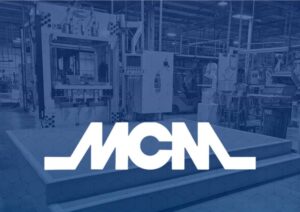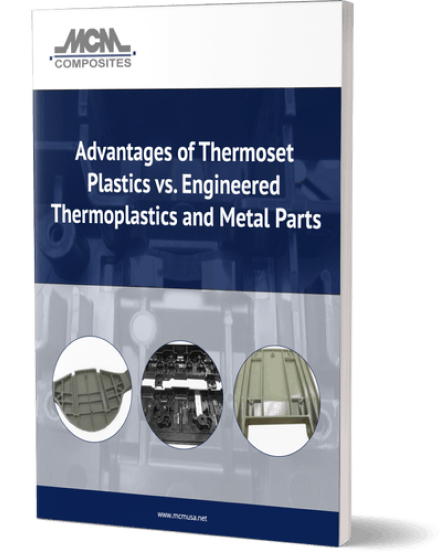January 11, 2025
Thermoset Plastics vs. Thermoplastics
While you may have heard the terms thermoset plastic and thermoplastics used synonymously, they are two different products. Composed of polymer powders, they each react differently when exposed to heat. While thermoset plastics are cured by heat, they can only be formed once and are not suitable for exposure to extremely variable or high temperatures. Engineered thermoplastics, however, remain pliable and can be ground and reformed without changing the chemical composition.
The Basics
Thermosets are a popular alternative to metal. Often they are comparable in strength and rigidity, but have greater corrosion resistance with less weight than metal. Thermoset plastics are not only heat-resistant, creep resistant, and ideal for tight tolerances, but they also have higher impact resistance and durability than thermoplastics. They can be less expensive to source and form than either metal or engineered thermoplastics, and the fact that they do not require finishing makes them even more cost and time-efficient.
MCM works with most types of thermoset plastics, such as:
- Carbon fiber epoxy resin
- Phenolics
- BMC (bulk molded compounds)
- Fluoropolymers,
- Melamine
- Urea-formaldehyde
Thermoplastics include Polyethylene, Acrylonitrile Butadiene Styrene (ABS), Polymide (Nylon), Polycarbonate, Polypropylene, and High Impact Polystyrene (HIPS).
Their Differences
While thermoplastics are more suited to some applications like plastic bags, plastic films, clothing, carpeting, and flexible packaging, there are some distinct advantages to choosing thermosets over thermoplastics.
Their Applications
Both thermoset plastics and thermoplastics can be easily formed, making them attractive alternatives to metals in a variety of sectors and industries. The aerospace and automotive industries, as well as the energy sector, including oil, gas, and solar, have seen huge benefits by leveraging the exceptional versatility of thermosets and thermoplastics. Electrical components, durable manufactured goods, and heavy-duty construction equipment manufacturers routinely use thermosets and thermoplastics. While thermoplastics are highly flexible and recyclable, thermosets will be preferred in applications requiring strength at temperatures up to 500° F.
Applications that make extensive use of thermoset plastics include but aren’t limited to:
- Aerospace components
- Appliance parts
- Arc shielding
- Connector housings
- Electrical and electromechanical components
- Food grade parts & food and beverage processing equipment
- Marine applications
- Medical devices and equipment
- Outdoor furniture
- Outdoor lighting
- Parts that require insert molding
- Public transportation seating
Thermoset Plastics from MCM Composites
MCM Composites, LLC is an industry leader in thermoset plastic molding, including injection molding and compression molding. We also offer secondary services for injection molded parts such as tapping, drilling, coating, and multi-piece assembly. Our experienced team works with both customers and suppliers to determine the ideal material for the specific application.
MCM Composites produces over 1,000 different parts for customers throughout the United States, Canada, China, Mexico, and the Caribbean in our ISO 9001:2015 certified mold shop. We are committed to providing the highest quality thermoset plastic components in strict conformance with our customers’ specifications. For more information about our capabilities, contact us today or request a quote.

